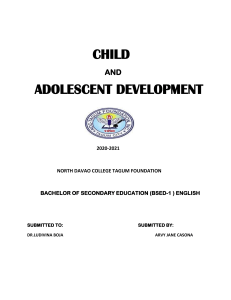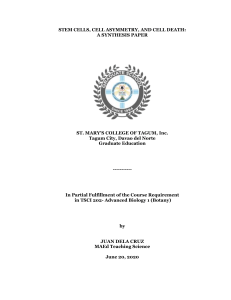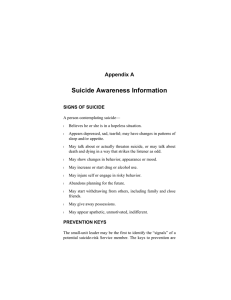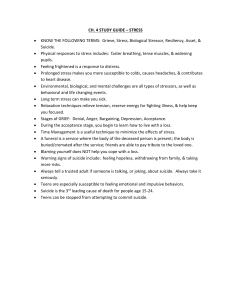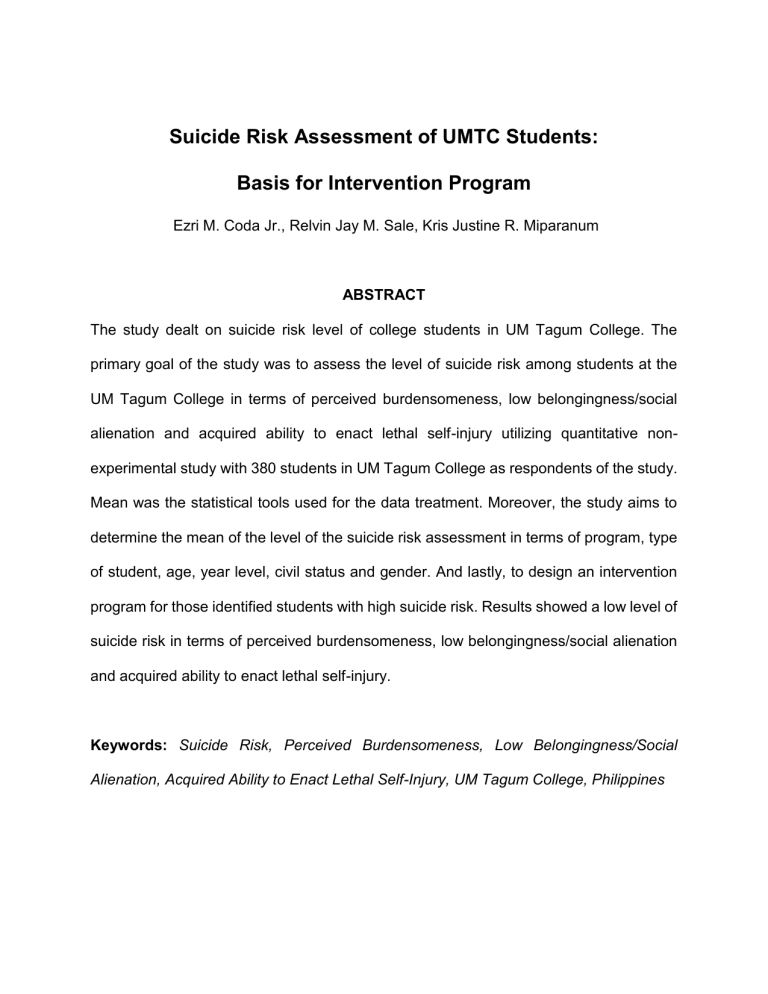
Suicide Risk Assessment of UMTC Students: Basis for Intervention Program Ezri M. Coda Jr., Relvin Jay M. Sale, Kris Justine R. Miparanum ABSTRACT The study dealt on suicide risk level of college students in UM Tagum College. The primary goal of the study was to assess the level of suicide risk among students at the UM Tagum College in terms of perceived burdensomeness, low belongingness/social alienation and acquired ability to enact lethal self-injury utilizing quantitative nonexperimental study with 380 students in UM Tagum College as respondents of the study. Mean was the statistical tools used for the data treatment. Moreover, the study aims to determine the mean of the level of the suicide risk assessment in terms of program, type of student, age, year level, civil status and gender. And lastly, to design an intervention program for those identified students with high suicide risk. Results showed a low level of suicide risk in terms of perceived burdensomeness, low belongingness/social alienation and acquired ability to enact lethal self-injury. Keywords: Suicide Risk, Perceived Burdensomeness, Low Belongingness/Social Alienation, Acquired Ability to Enact Lethal Self-Injury, UM Tagum College, Philippines

